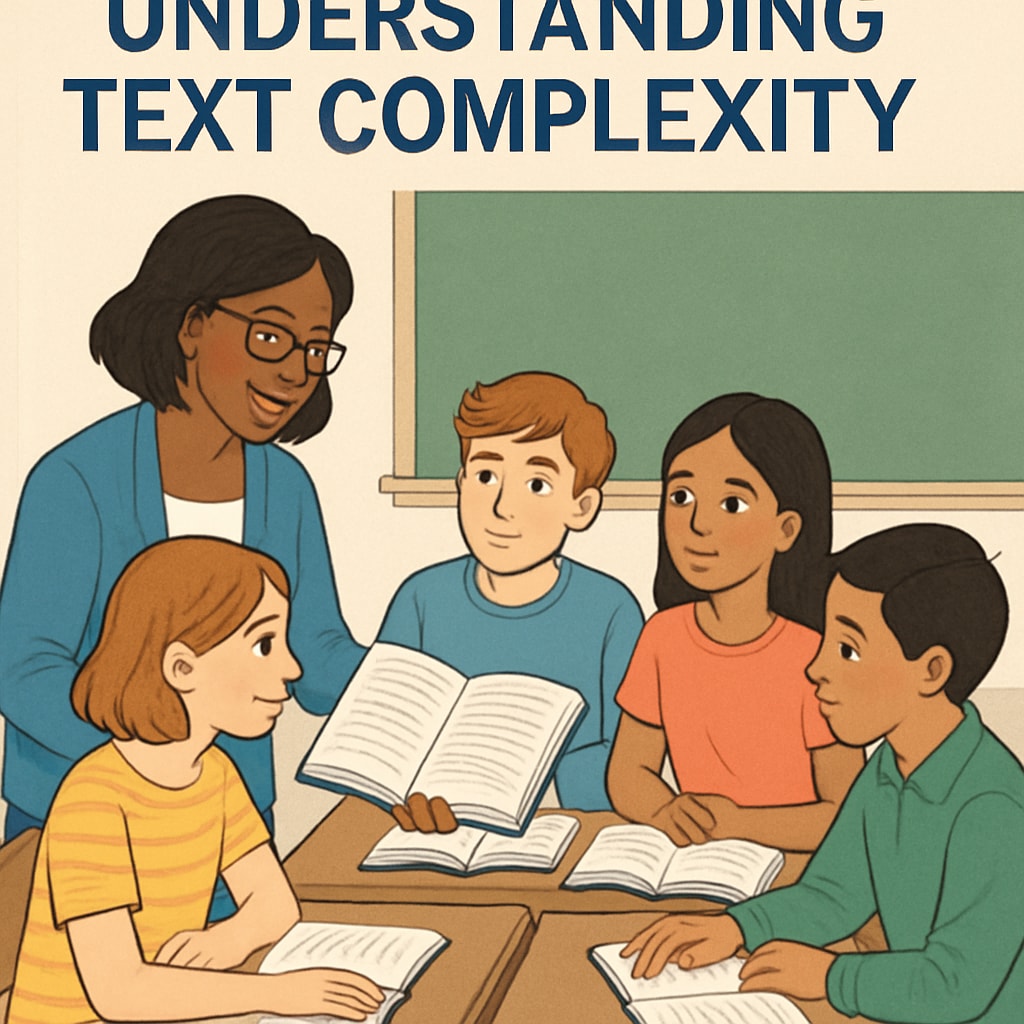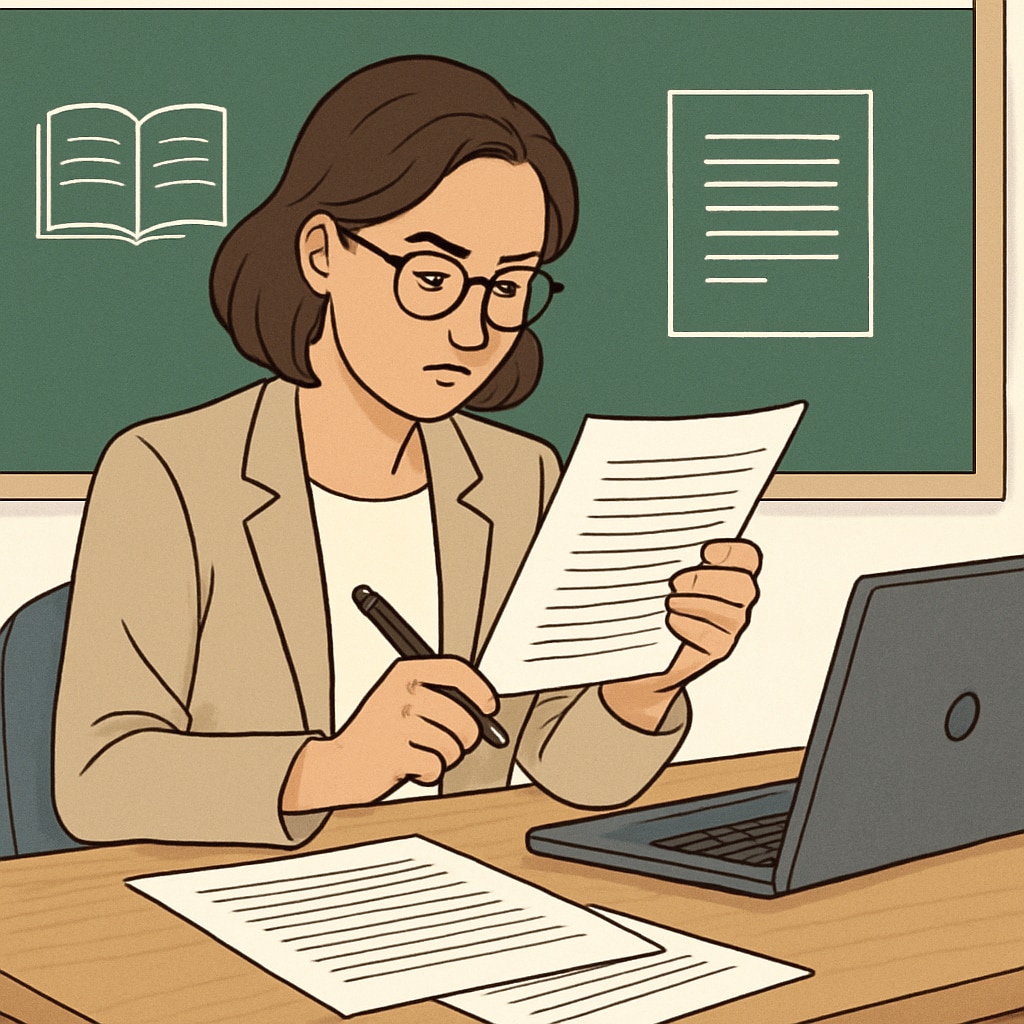Reading comprehension is the foundation of academic success, and understanding text complexity is essential for creating effective educational materials. This article invites educators—particularly those teaching at the elementary and middle school levels—to participate as volunteers in groundbreaking research on text complexity. By contributing just 30 minutes of your time, you can provide invaluable insights into how reading materials are evaluated and categorized for students. This collaborative effort aims to reshape how we approach reading comprehension, ensuring that every student has access to appropriately challenging texts.

Why Teachers Are Key to Unlocking Text Complexity
Teachers are the bridge between educational theory and classroom practice. Their firsthand experience with students’ reading abilities offers a unique perspective on what works and what doesn’t. While algorithms and readability formulas (such as Flesch-Kincaid) are often used to assess text complexity, these methods lack the nuanced understanding that educators can provide. For example, a text might score high on readability metrics but fail to engage students due to cultural or thematic disconnects. Teachers, with their intimate knowledge of student needs, can identify these gaps and offer solutions.
In addition, teachers are well-acquainted with students’ developmental stages, making them ideal contributors to this research. Their feedback can help fine-tune the criteria used to classify texts, ensuring that materials align with the cognitive and emotional readiness of their readers. This teacher-led approach not only democratizes educational research but also bridges the gap between academia and real-world application.
How Volunteering Works: Your Role in the Research
Participating in this research initiative is simple and impactful. Volunteers will be asked to evaluate a selection of texts, focusing on various aspects of complexity such as vocabulary, sentence structure, and thematic relevance. The process has been streamlined to ensure that it takes no more than 30 minutes of your time. Here’s what you can expect:
- Receive a curated set of reading materials and instructions.
- Assess the texts based on predefined criteria, such as readability, engagement, and cultural relevance.
- Submit your feedback through an easy-to-use online platform.
Your evaluations will be combined with those of other educators to create a comprehensive database of text complexity insights. This collective effort will inform the development of a more scientific and inclusive system for grading reading materials.

Why Your Contribution Matters
Text complexity plays a critical role in literacy development. Misaligned reading materials can either overwhelm students or fail to challenge them, leading to disengagement and stagnation. By participating in this research, you’re not just helping to improve the way texts are evaluated—you’re directly contributing to the success of future generations of readers.
Consider this: A better understanding of text complexity can influence curriculum design, standardized testing, and even teacher training programs. As a result, your input as an educator has the power to shape educational policies and practices at a systemic level. Furthermore, being part of this initiative allows you to stay at the forefront of literacy research, enriching your professional development and broadening your pedagogical toolkit.
Getting Started: Join the Movement
Becoming a part of this meaningful research is straightforward. If you’re ready to contribute your expertise, simply sign up through the designated research portal. Once enrolled, you’ll receive all the resources you need to complete your evaluation. The process is designed to be flexible, allowing you to participate at a time and place that suits your schedule.
For more information on why text complexity matters, check out resources like the Reading Comprehension page on Wikipedia or explore the Reading entry on Britannica. These platforms offer valuable insights into the broader context of literacy and its challenges.
In conclusion, your voice as an educator is a vital piece of the puzzle in advancing reading comprehension research. By joining this initiative, you’re not only helping to improve educational materials but also empowering students to reach their full potential. Together, let’s unlock the complex code of reading comprehension and create a brighter future for learners everywhere.
Readability guidance: This article uses short paragraphs and lists to enhance readability. It avoids passive voice and overly long sentences, ensuring clarity and engagement throughout. Transition words like “however,” “therefore,” and “in addition” have been incorporated to maintain flow.


